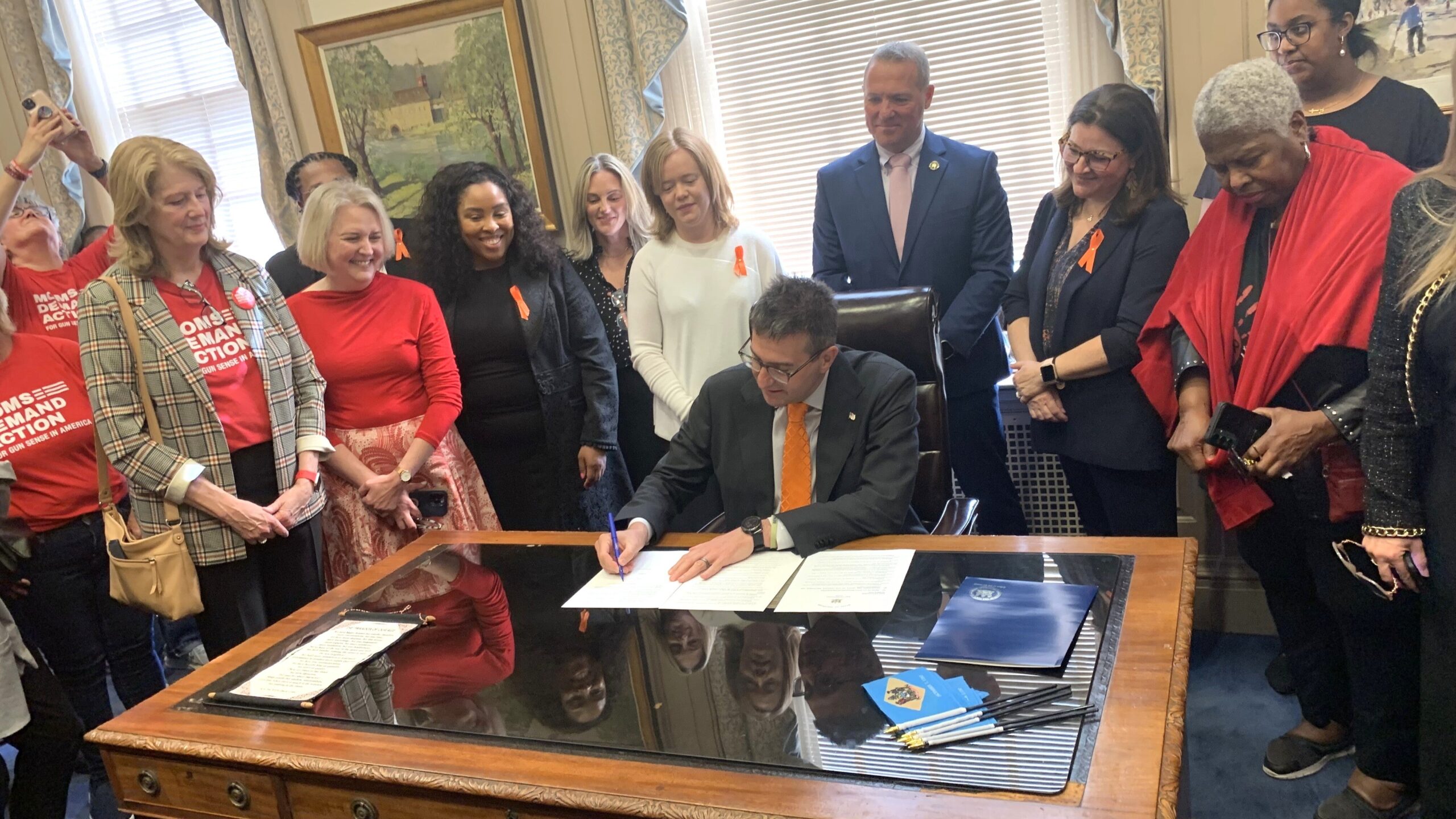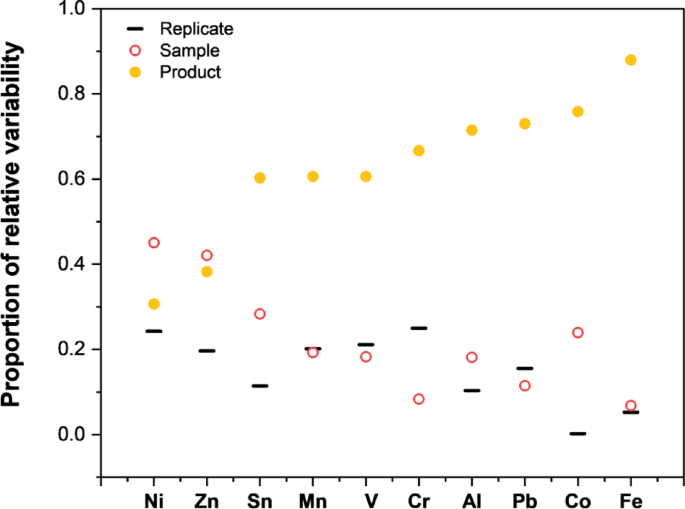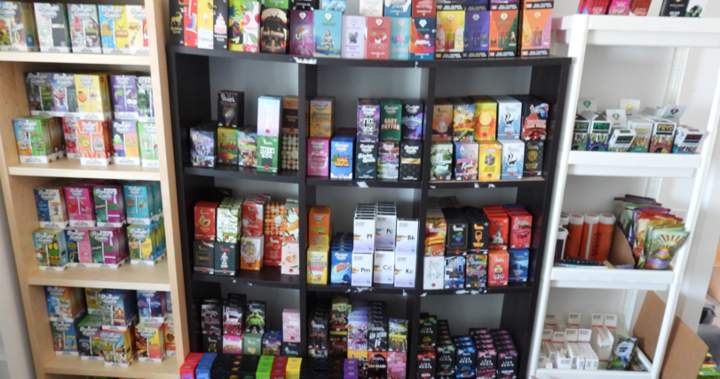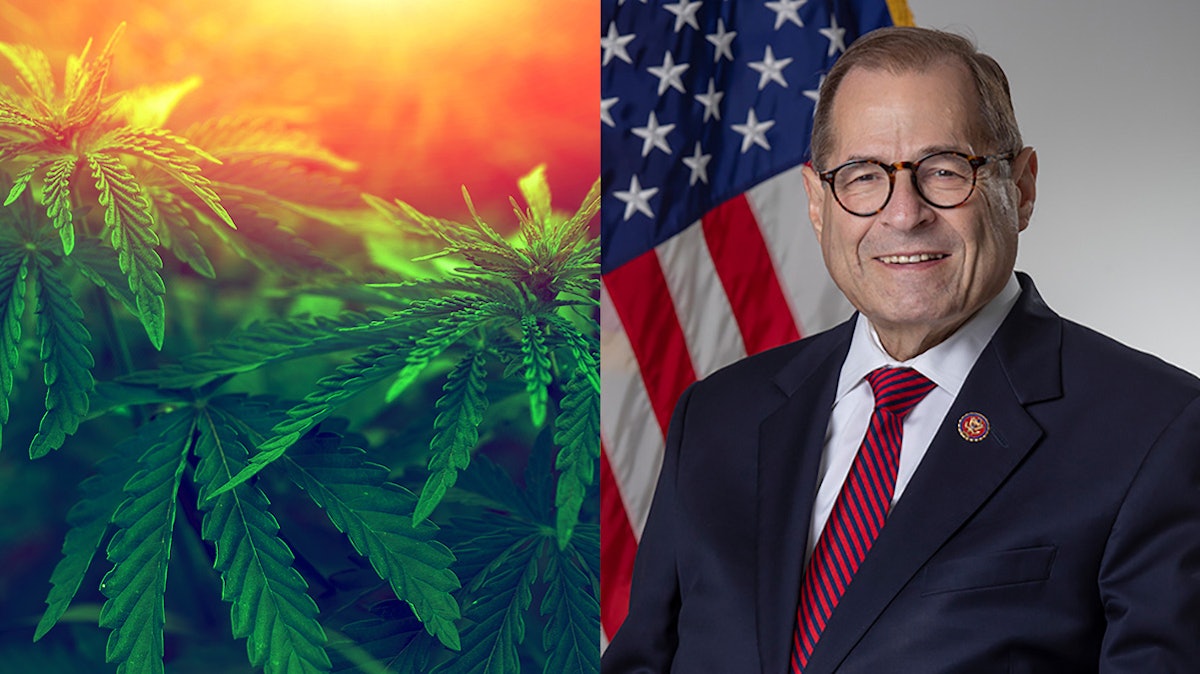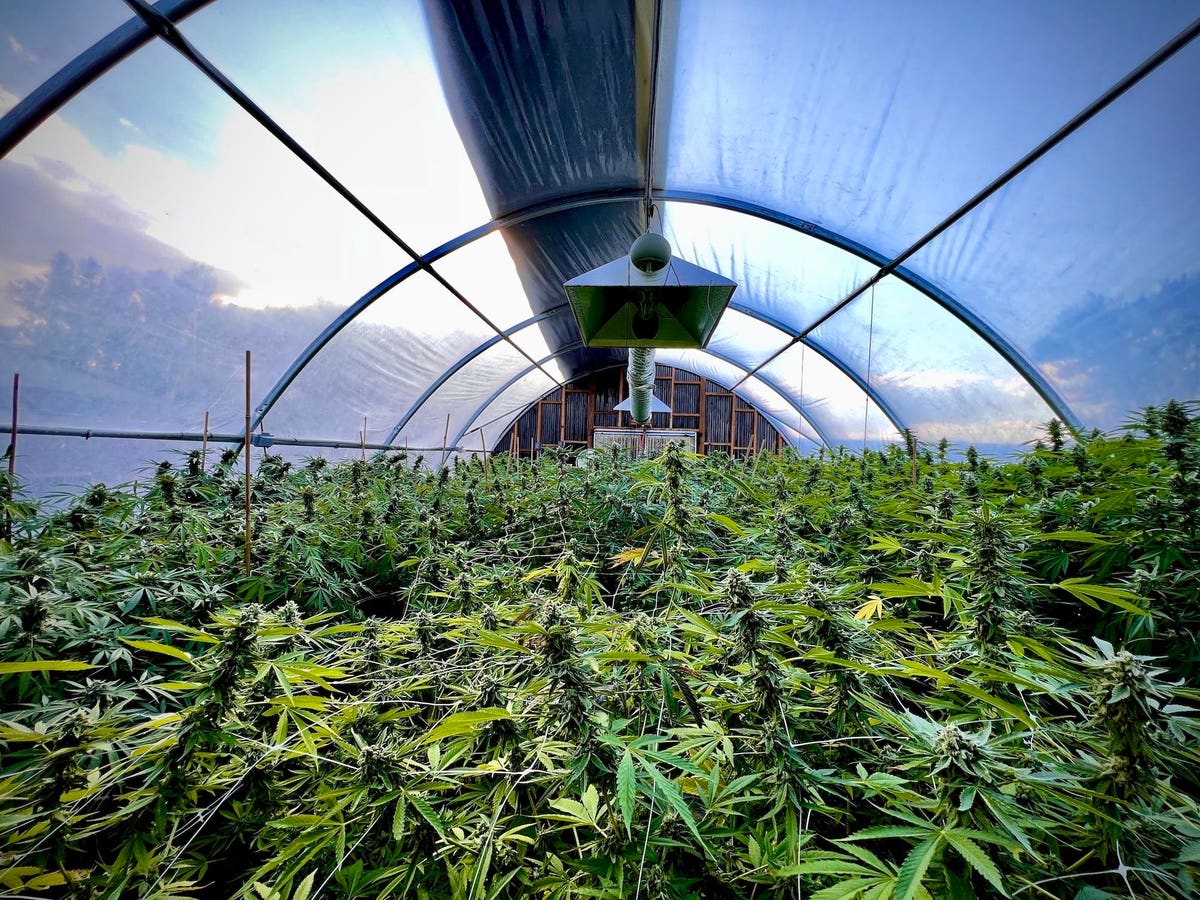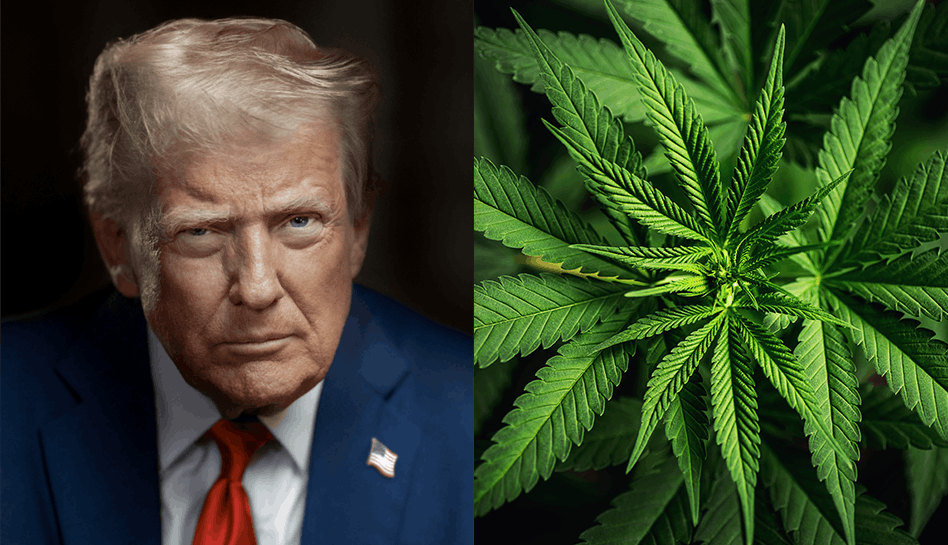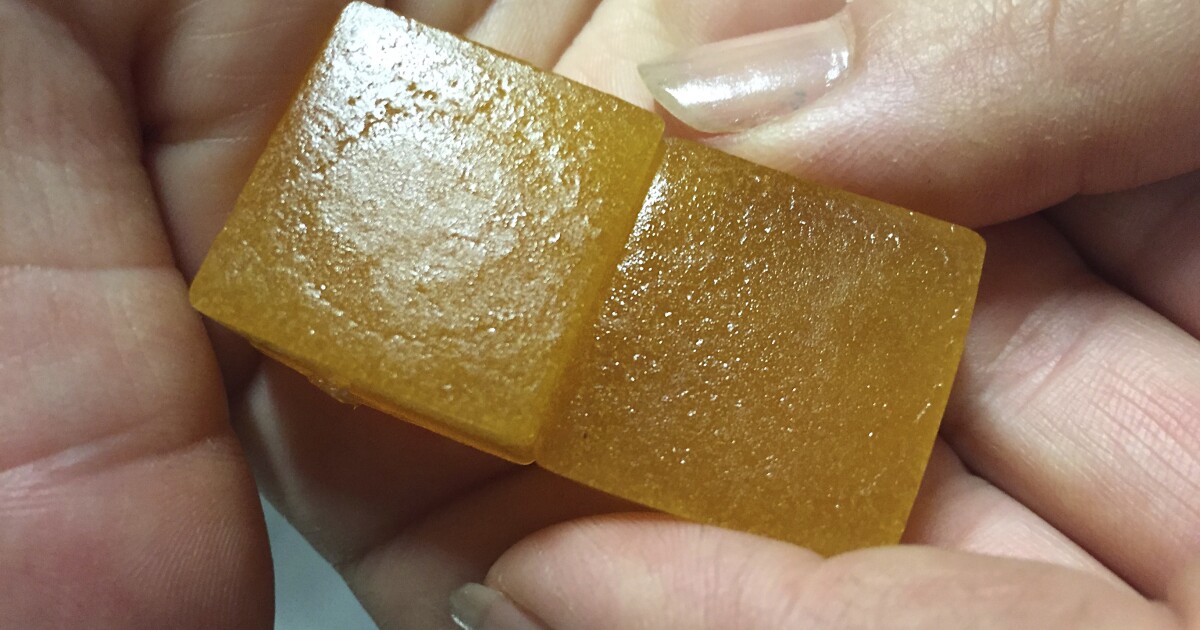Author: TokeTheMost
Tracking metal presence in cannabis vaping products from source to inhalation
Tracking metal presence in cannabis vaping products from source to inhalation
How To Turn Cannabis & Hemp Products Into Fashionable Accessories
Smoke Show Co. Clothing and High On Plants Earrings
Smoke Show Co.
Cannabis’ aesthetics have come a long way, shifting from mason jars and ziplock bags, to polished and colorful high end packaging. We’ve never been in a better era for matching your cannabis or hemp products to your fashion. If you’re not sure how to style your cannabis products, here are ten canna-fashion pairings to try.
Sexy Smoke Show
Bathing Suits In Snow Leopard By Smoke Show Co.
Smoke Show Co.
Smoke Show Co is a great place to start for cannabis themed fashion. It features prints with cannabis or psychedelic focused art, but still reads very high end. Their latest print Snow Leopard is available in a variety of cuts.
Mexican Agave, Lime and Jalapeno THC Margarita from Senorita
Senorita
Pair Snow Leopard with Mexican Agave, Lime and Jalapeno THC Margarita from Senorita, and Electric Honeydew Solventless Hash Rosin Pearls from Gron. The black, white and green color story in these products will bring out the colors in the print, and create an effortlessly sexy look.
Electric Honeydew Solventless Hash Rosin Pearls from Gron
Gron
Sunset Luxury
Mesh Crop Top and Skirt in Mushroom Yeti by Smoke Show Co
Smoke Show Co
Smokeshow Co also has a luxuriously soft line of mesh clothing. The Mushroom Yeti print features gorgeous orange and red tones. Matching the color of the sunset, and feeling like air, these beautiful pieces match seamlessly with the Limited Edition Puffco Daybreak Peak Pro 3DXL E-Rig, and matching Hot Knife and Case.
Limited Edition Daybreak Peak Pro 3DXL E-Rig, and matching Hot Knife and Case by Puffco
Puffco
Sold separately or as a set, this E-rig and accessories collection has the same colors as the Mushroom Yeti print, in a beautiful ombre. The combination of these high-end cannabis fashion items is sure to stun at any sunset smoke sesh.
Down To Earth
Hudson Lounge Shirt and Pants in Washed Copper/Whitecap from Brixton
Brixton
If you’ve got a more relaxed and down to earth style, you might enjoy the Hudson Lounge Shirt and Pants in Washed Copper/Whitecap. This laid back set from Brixton would match perfectly with the Cinnamon Apple Indica Gummies from Chill Country Cannabis.
Cinnamon Apple Indica Gummies from Chill Country Cannabis
Chill Country Cannabis
The mellow vibes of this comfortable earth toned outfit will only be enhanced by these calming edibles in matching copper and beige packaging.
Boho Whimsy
Tricia Embroidered Cotton Mini Dress in Meadow Patches from Natural Life
Natural Life
For a touch of boho fashion, try out this outfit from Natural Life. Pair the Tricia Embroidered Cotton Mini Dress in Meadow Patches with the Fave Little Things Embroidered Shirt and Embroidered Kisslock Coin Purse in Denim.
Fave Little Things Embroidered Shirt from Natural Life
Natural Life
Embroidered Kisslock Coin Purse in Denim from Natural Life
Natural Life
Then match the whimsical outfit with Wyld’s Strawberry Guava Infused Sparkling Water and Florette’s Preroll 5-Pack in Chemdog D.
Strawberry Guava Infused Sparkling Water from Wyld
Wyld
Preroll 5-Pack in Chemdog D from Florette
Florette
The playful combination of colors will bring out the multicolored elements in the dress and overshirt. The final effect? Eclectic but put together.
Cali-Sober Socialite
Epo Tie Top in Carmine from Osei Doro
Osei Doro
Nothing says California like weed and wine. But even if you’re Cali-sober (meaning you only use cannabis and not alcohol), you can still enjoy a nice bottle of cannabis wine. The Epo Tie Top in Carmine from Osei Doro is a gorgeous little wrap that could be thrown on over any little black dress. Ethically made, and hand-dyed in Ghana, the pink, orange and black pattern is sure to add a unique but high-end flair to your look.
Plush from Mariona
Mariona
Pair your outfit with Plush from Mariona, an Alcohol Free THC wine alternative. With notes of plum, black currant and star anise, and packaging that seamlessly matches the Epo top, even wine connoisseurs may want to try a glass.
Cozy Comfort
Feeling Lucky Sweatshorts and Reversible Crewneck from The Mayfair Group
The Mayfair Group
Get cozy for your next lazy smoke sesh with friends. The Mayfair Group’s Feeling Lucky Sweatshorts and Reversible Crewneck is as comfortable as it is cool. Covered in cute symbols of love and luck, the muted primary colors match perfectly with Hometown Hero’s Double Take Edibles in Pineapple Coconut. These tasty edibles include both fast acting and traditional edible formulations so you can get medicated quickly and then enjoy a nice long high afterwards.
Double Take Edibles in Pineapple Coconut from Hometown Hero
Hometown Hero
For extra style points, add a Maui Pineapple Infused Preroll from Mitten Extracts. Their mellow yellow packaging is a perfect color match, and the flavors are a perfect complement to the edibles.
Maui Pineapple Infused Preroll from Mitten Extracts
Mitten Extracts
Quirky Elegance
Sara Wrap Pants in Indie Chex from Rujuta Sheth
Rujuta Sheth
Rujuta Sheth is a brand like no other. Their handwoven organic textiles come in a variety of vibrant patterns and modern silhouettes that stand out in the best kind of way. Try out the Sara Wrap Pants and Rita Top in Indie Chex for an outfit that makes blending elegance and bold personality seem effortless.
Rita Top in Indie Chex from Rujuta Sheth
Rujuta Sheth
Pair with some prerolls from Kind Tree. The lavender and mint packaging will bring out the rainbow of hues in your outfit for a quirky but high-end look that is styled head to toe to cannabis.
Prerolls from Kind Tree
Kind Tree
Highlighting Accessories With Vape Pens
Another easy hack for putting together a coordinated cannabis vibe is to match your vape pen with your accessories. Sauce has a variety of all-in-one disposable vapes in every color of the rainbow that are perfect for this move. Grab one that matches your favorite accessories for a combination that you can wear over and over again with different outfits.
Northern Lights Vape Pen From Sauce
Sauce
Yellow Mini Acrylic Leaf Earrings from High On Plants
High On Plants
Their Northern Lights vape would be a great match for these gorgeous Yellow Mini Acrylic Leaf Earrings from High On Plants. While they look like slightly different colors in the images online, the color match in person is perfect.
Desert Disco Sheer Socks from Sock Candy
Sock Candy
Gelato All-In-One Disposable Vape Pen by Sauce
Sauce
Or try matching your vape with your footwear. The Gelato vape would be a great complement for these Desert Disco sheer socks from Sock Candy.
Gold Pax Era Go Vape Pen
Pax
For a combination with great longevity, try finding a vape pen that matches the type of
metallic jewelry you tend to wear. This gold Pax Era Go vape pen goes nicely with gold jewelry like these Cinque Terre Earrings and Tropea Pearl Prelayer by Frasier Sterling.
Cinque Terre Earrings by Frasier Sterling
Frasier Sterling
Tropea Pearl Prelayer by Frasier Sterling
Frasier Sterling
Police seize $8M in illicit cannabis after busting alleged network from Ontario to Nova Scotia
An eight-month, multi-jurisdictional investigation uncovered a network that police allege was illegally producing cannabis in Ontario and then shipping it to Quebec, New Brunswick and Nova Scotia.
Ontario Provincial Police say five people between the ages of 32 and 59 — four from the GTA and one from Brantford, Ont. — face 18 offences in connection with the case, mostly under the Cannabis Act. It was not clear as of publication time whether anyone outside of Ontario is facing charges in the case.
As part of the investigation, officers seized 753 pounds of dried illicit cannabis, 28,280 illicit cannabis plants and a large quantity of illicit cannabis products, like edibles and vapes, as well as some contraband tobacco, 30 grams of suspected cocaine and $4,600. Police valued the items seized at over $8 million.
The investigation began last October with the OPP working alongside the Safer Communities Section — Department of Justice and Public Safety New Brunswick. Police say the Financial Transactions and Reports Analysis Centre of Canada (FINTRAC) also helped in the investigation, providing financial intelligence disclosures, through its public-private partnership Project Legion led by Toronto-Dominion Bank.
Illicit cannabis product seized in a multi-jurisdictional investigation in Ontario, Quebec, New Brunswick and Nova Scotia.
supplied by OPP
Between October 2024 and July of this year, five search warrants were executed across Ontario, in Etobicoke and Scarborough in the GTA, Brantford and nearby Ohsweken and an illicit cannabis grow operation in Binbrook (near Hamilton).

Get daily National news
Get the day’s top news, political, economic, and current affairs headlines, delivered to your inbox once a day.
All five suspects were released from custody pending court appearances in Toronto.
Police did not provide information as to where the illicit product was being sold in Quebec, New Brunswick and Nova Scotia, nor did they expand on the kinds of financial records used to identify the network. However, a government website notes that, in general, Project Legion looks at “suspicious transaction reports,” which include anything from transaction details making reference to cannabis-related terminology to someone making excessive or atypical utility payments, to unexpectedly large purchases at candy stores or kitchenware stores.
Illicit dried cannabis seized in a multi-jurisdictional investigation in Ontario, Quebec, New Brunswick and Nova Scotia.
supplied by OPP
© 2025 Global News, a division of Corus Entertainment Inc.
40 House Democrats Introduce Bill to Federally Legalize Cannabis
As anticipation continues for President Donald Trump’s decision on cannabis rescheduling, one of the longest-serving U.S. House members is creating new industry shockwaves through legislation to more broadly legalize the plant.
Rep. Jerry Nadler, D-N.Y., one of the top Democrats serving on the U.S. House Judiciary Committee, reintroduced the Marijuana Opportunity, Reinvestment and Expungement (MORE) Act on Aug. 29. The 91-page legislation, now in its fourth rendition, would federally legalize cannabis by removing it entirely from the Controlled Substances Act (CSA).
Coinciding with this legislative proposal, Trump is entertaining an executive proposal to reclassify cannabis from a Schedule I to Schedule III drug, a process that was initiated under former President Joe Biden’s administration but has been stalled since early January.
Under Nadler’s vision, not only would cannabis be decriminalized, but the MORE Act also intends to provide expungements for individuals with certain cannabis-related offenses as well as create reinvestment opportunities for those most affected by prohibition policies.
“As more states continue to legalize marijuana and public support increases, federal laws must catch up and reverse failed policies criminalizing marijuana,” Nadler said in a press release provided to Cannabis Business Times. “It is long past time to decriminalize marijuana at the federal level, expunge marijuana convictions and facilitate resentencing, while reinvesting in the communities most adversely impacted by the war on drugs.”
The U.S. House twice passed previous versions of the MORE Act, most recently in April 2022, when lawmakers cast a partisan vote, 220-204, entirely along party lines.
Most recently, the legislation attracted 95 co-sponsors in the last Congress but failed to gain any traction in the Republican-controlled lower chamber.
In this week’s reintroduction, Nadler filed the MORE Act with 39 original co-sponsors, including Reps. Dina Titus, D-Nev., and Ilhan Omar, D-Minn.—the Democratic Party’s co-chairs for the bipartisan Congressional Cannabis Caucus—and Rep. Nydia Velázquez, D-N.Y., the ranking member of the House Committee on Small Business.
“It’s time to modernize our laws to reflect the reality of cannabis use in the United States, recognize the legitimate industry that has emerged, and fully embrace the medical benefits of the plant,” Titus said. “The federal government must catch up to the states, and this bill provides a framework to end the failed war on drugs while supporting communities and businesses nationwide.”
The legislation comes as 24 states and Washington, D.C., have legalized adult-use cannabis, while 40 states have legalized medical cannabis.
Nadler first introduced the MORE Act in 2019, when he helped advance the legislation as then-chair of the House Judiciary Committee. The legislation attracted a 228-164 floor vote for passage in the final month of the 116th Congress.
However, Rep. Jim Jordan, R-Ohio, as the current chair of the Judiciary Committee, remains a blockade for the legislation’s advancement this Congress: He voted against the MORE Act in 2020 and 2022.
In addition to legalizing cannabis in the U.S., the MORE Act would impose a progressive federal excise tax on cannabis sales that would start at 5% for the first two years of implementation and increase to 8% by the fifth year. This tax revenue would, in part, be reinvested in disproportionately impacted communities and adversely affected individuals hoping to participate in the marketplace.
The cannabis tax revenue would go into an “Opportunity Trust Fund,” from which 60% would go to the U.S. Attorney General’s office to carry out portions of the Omnibus Crime Control and Safe Streets Act of 1968, which is designed to assist state and local governments in reducing the incidence of crime and to increase the effectiveness, fairness and coordination of law enforcement and criminal justice systems at all levels of government.
According to Nadler’s office, the MORE Act also:
- Decriminalizes marijuana at the federal level by removing the substance from the Controlled Substances Act. This applies retroactively to prior and pending convictions and enables states to set their own policy.
- Requires federal courts to expunge prior convictions, allows prior offenders to request expungement, and requires courts, on motion, to conduct re-sentencing hearings for those still under supervision.
- Authorizes the assessment of a 5% sales tax on marijuana and marijuana products to create an Opportunity Trust Fund, which includes three grant programs:
- The Community Reinvestment Grant Program: Provides services to the individuals most adversely impacted by the war on drugs, including job training, re-entry services, legal aid, literacy programs, youth recreation, mentoring and substance use treatment.
- The Cannabis Opportunity Grant Program: Provides funds for loans to assist small businesses in the marijuana industry that are owned and controlled by socially and economically disadvantaged individuals.
- The Equitable Licensing Grant Program: Provides funds for programs that minimize barriers to marijuana licensing and employment for the individuals most adversely impacted by the war on drugs.
- Opens up Small Business Administration funding for legitimate cannabis-related businesses and service providers.
- Provides non-discrimination protections for marijuana use or possession, and for prior convictions for a marijuana offense:
- Prohibits the denial of any federal public benefit (including housing) based on the use or possession of marijuana, or prior conviction for a marijuana offense.
- Provides that the use or possession of marijuana, or a prior conviction for a marijuana offense, will have no adverse impact under the immigration laws.
- Requires the Bureau of Labor Statistics to collect data on the demographics of the industry to ensure people of color and those who are economically disadvantaged are participating in the industry.
“For too long, communities of color have carried the weight of unfair marijuana laws that fueled incarceration and denied people opportunity,” Velázquez said. “The MORE Act is about justice, about giving people a second chance, and about making sure small businesses and workers in these communities can share in the benefits of legalization.”
The legislation is supported by a broad coalition of civil rights, criminal justice, drug policy, and immigration groups, including: the Leadership Conference on Civil and Human Rights, Drug Policy Alliance, NORML, Better Organizing to Win Legalization, Minorities for Medical Marijuana, the Center for American Progress, and Students for Sensible Drug Policy, among others.
“As states continue to move away from their failed experiments with cannabis prohibition, it is incumbent on Congress to resolve the growing conflict between state and federal law and do everything it can to repair the damage caused by nearly a century of disastrous criminalization policies,” NORML Political Director Morgan Fox said. ”This legislation embodies the wishes of more than two-thirds of the American public and will create a federal cannabis framework that respects states’ rights and is focused on science, pragmatism and justice.”
Businesses Unite Under Cannabis Association Of New Mexico
Plants grow inside a greenhouse at a farm in Socorro, New Mexico. High Maintenance owner Matt Kennicott is co-founder of the newly-formed Cannabis Association of New Mexico (CANM).
Photo courtesy High Maintenance.
With New Mexico’s cannabis market at a crossroads, a new association is stepping in to rally businesses, push reforms, and help guide the industry’s future.
On Tuesday, the Cannabis Association of New Mexico (CANM) announced its creation with membership open to all licensed cannabis and ancillary businesses in the state. The organization seeks to support cannabis growers, manufacturers, retailers, and other ancillary service providers.
The association will focus on education, industry best practices, and collective advocacy, with the goal of empowering members, sparking innovation, and driving economic growth across the state.
“The Cannabis Association of New Mexico (CANM) was established to fill a critical gap in the state’s cannabis industry—one left by years of ineffective or inconsistent advocacy,” CANM co-founder Matt Kennicott says in an emailed statement. “Our multi-tiered membership structure ensures that every cannabis business, large or small, has a seat at the table.”
Kennicott began working in cannabis policy in 2006 during the passage of New Mexico’s Compassionate Use Act, helping to expand medical cannabis licensing in the state. He’s provided guidance on licensing and compliance, founded an award-winning advocacy organization, and led successful strategic communication campaigns at various levels. Kennicott is the owner of Socorro-based High Maintenance, a farm and company that provides consulting services to cannabis businesses.
Challenges Specific To New Mexico’s Market
A High Maintenance farm in Socorro, New Mexico glows during the night, led by a founding member of CANM.
Photo courtesy of High Maintenance.
In southern New Mexico, licensed cannabis businesses face unique challenges, such as seizures from the U.S. Border Patrol. Even though the state’s adult-use market kicked off two years ago, distribution has been like a minefield, with drivers facing detainment from Border Patrol officers. This goes beyond the typical financial burdens licensed cannabis businesses face in New Mexico and in other state markets. The saturated illicit market in the state has led to calls for reform.
“We recognized the growing need for stronger, unified industry representation—and we stepped up to lead that charge,” Kennicott says.
The organizations current priorities are the following:
- Fixing the Cannabis Excise Tax to reduce unnecessary burdens on businesses
- Advocating for pre-licensing inspections by the Cannabis Control Division
- Addressing ongoing water access and usage issues
- Standardizing testing protocols to ensure fairness and safety
- Supporting training for regulators, law enforcement, and inspectors on day-to-day cannabis operations
In addition to the association’s policy efforts, they are launching educational programs and networking events designed to strengthen the industry from within. They will roll out exclusive monthly member-insider meetings taking place monthly, beginning on Oct. 1. The organization believes this approach will help others overcome these hurdles.
“When we work together, we can make a lasting impact,” Kennicott says. “The voice of CANM reflects the diversity of our industry—not just a select few. We’re committed to building a more equitable, transparent, and sustainable cannabis market for businesses and consumers alike.”
Cannabis Association of New Mexico’s Founding Board
The organization’s board features a lineup of leaders from across New Mexico’s cannabis landscape, each bringing something unique to the table. CANM’s founding board includes the following members:
- Donnie Romero – owner, Pharmers Quality
- Tony Martinez – owner, Lava Leaf Organics
- Amanda Metzler – policy specialist, Higher Cultures
- Will Brandenburg – director of sales, First Crop
- Barry Dungan – president, Rio Grande Analytics
- Kerry Mackey – owner, Mindscape Dispensary
- Lyndsie Valdez – owner, Zia Toke
- Annie Rothrock – senior compliance specialist, Wyld
- Matt Kennicott – executive director
“We’re at a critical juncture where unity is non-negotiable,” Donnie Romero, owner of Pharmers Quality, said in the announcement. “I’m not usually one to jump into the fray, but it’s time to roll up our sleeves and shape an industry that delivers for both businesses and consumers.”
“Industry advocacy is the bedrock of a strong, enduring market,” said Amanda Metzler, Policy Specialist at Higher Cultures and a veteran in building industry associations. “When we unite to champion causes that matter to our businesses, we create a ripple effect that uplifts the entire state, not just a select
Before operating in New Mexico, Metzler was one of the first licensed cannabis farm operators in Oregon in 2016, and in the following year, she founded FARMS Inc., Oregon’s Cannabis Farm Advocates. In 2022, she also played a key role in merging Oregon’s four cannabis trade associations into one: the Cannabis Industry Alliance of Oregon (CIAO), where she now serves as an Emeritus Board Member. She is currently the policy specialist for the Oregon-based cannabis brand Higher Cultures.
With the addition of CANM, New Mexico’s cannabis business owners and operators have a place to gather and voice their opinions, supporting growers, manufacturers, retailers, and other types of businesses.
9 US Lawmakers Urge Trump to Reject Cannabis Rescheduling
Under the advisement of the nation’s top prohibitionist, nine Republican U.S. House lawmakers sent the Trump administration a letter on Aug. 28 urging the Department of Justice (DOJ) to kill a cannabis rescheduling proposal.
The letter, spearheaded by Rep. Pete Sessions, R-Texas, and orchestrated in part by Smart Approaches to Marijuana (SAM) President and CEO Kevin Sabet, was addressed to Attorney General Pam Bondi and copied to President Donald Trump.
The letter was sent as cannabis industry stakeholders await an anticipated announcement from Trump, who, at an Aug. 11 press conference, said he would make a decision on a DOJ proposed rule to reclassify cannabis from Schedule I to Schedule III “over the next few weeks.” Former Attorney General Merrick Garland signed the proposal under the administration of President Joe Biden.
“We write to urge you to reject the Biden administration’s corrupt and flawed recommendation to reclassify marijuana as a Schedule III drug,” Sessions and his cohort wrote. “Rescheduling marijuana would send a message to kids that marijuana is not harmful and allow Big Marijuana and foreign drug cartels to get billions per year in federal tax breaks.”
Moving cannabis to Schedule III under the Controlled Substances Act (CSA) would end the punitive Section 280E tax barrier of the Internal Revenue Code for state-sanctioned cannabis businesses, allowing them to deduct their ordinary business expenses—such as payroll, rent and utilities—like any other traditional American company.
Under restrictions from a Schedule I federal status, some of the biggest cannabis companies in the nation are on the hook for upward of $100 million per year in 280E-related taxes. However, in recent years, companies like multistate operator Trulieve have been filing amended tax returns in a strategy to receive 280E-related refunds and avoid paying the punitive tax moving forward.
The nine GOP letter writers suggested that moving cannabis to Schedule III would provide tax breaks to “illegal” cannabis dispensaries and drug cartels to the tune of $2 billion per year.
“Tax Code Section 280E prevents drug traffickers who are selling Schedule I or II narcotics from expensing business deductions and getting tax credits,” they wrote. “This is a commonsense law, but the authors of it in 1982 never could have predicted that federally illegal drug sales would be sanctioned under state law without interference. If marijuana is made Schedule III, these still-illegal actors will get billions in tax write-offs for marketing their addictive drugs.”
Sessions’ signature was accompanied by Reps. Andy Harris, R-Md., Robert Aderholt, R-Ala., Chip Roy, R-Texas, Paul Gosar, R-Ariz., Blake Moore, R-Utah, Gary Palmer, R-Ala., David Rouzer, R-N.C., and Mary Miller, R-Ill.
While the majority of U.S. cannabis businesses have remained unprofitable in recent years, according to Whitney Economics, the term “big marijuana” is often pushed by Sabet and his associates at SAM. Sabet is a former White House Office of National Drug Control Policy adviser under the Bill Clinton, George W. Bush and Barack Obama administrations.
“President Trump is laser-focused on getting drugs off the streets,” Sabet said in Sessions’ press release about the letter. “Rescheduling would set back those efforts. Rejecting reclassifying marijuana aligns with the president’s priorities of combatting China and narco-terrorist cartels. Taking a step toward fulfilling George Soros’ lifelong goal of making drugs legal will not Make America Great Again.”
During his Aug. 11 press conference, Trump acknowledged that “some people like it,” “some people hate it,” and that cannabis is “bad for the children.” He also said that he hopes his determination “will be the right one.”
Trump could decide to resume the current cannabis rescheduling hearing process that was stayed by a now-retired administrative law judge in early January and has been pending the resolution of an interlocutory appeal since.
The president could decide to assign a new Drug Enforcement Administration (DEA) administrative law judge to the hearing. Or, he could decide to move forward on the Biden DOJ’s proposed rule without the hearing process by fast-tracking straight to a final rule. Or, Trump could start from the beginning, asking his Department of Health and Human Services (HHS) to initiate a new scientific and medical review: Biden’s HHS determined cannabis does have currently accepted medical use and therefore cannot be in Schedule I.
Alternatively, Trump could align with the nine GOP letter writers and scrap the reform proposal altogether. However, he did say along the campaign trail in September 2024 that he was committed to “research to unlock the medical uses of marijuana to a Schedule III drug.”
The nine GOP lawmakers reject the plant’s medical value.
“Marijuana supporters argue that marijuana has no business being in the same drug schedule as heroin, but their argument relies on a misunderstanding of the drug scheduling system,” they wrote. “Drug scheduling is not a harm index. Instead, drug scheduling weighs both potential for abuse and the accepted medical value of a specific drug. Marijuana, while different than heroin, still has the potential for abuse and has no scientifically proven medical value. Therefore, rescheduling marijuana would not only be objectively wrong, but it would also imply to our children that marijuana is safe. That couldn’t be further from the truth.”
The nine Republicans pointed to the National Institute on Drug Abuse and news reports they believe back their positions, including their claim that cannabis has a 30% addiction rate and that 30% of schizophrenia cases in young men could have been prevented without cannabis use. They also pointed out that cannabis use has outpaced alcohol use in recent years, as The Associated Press reported in 2022.
The letter writers also indicated that state-level legalization in states like Maine (adult-use and medical) and Oklahoma (medical only) has led to farms being run by Chinese drug cartels that commit crimes and make billions.
“It’s not just foreign cartels, but state-legal marijuana farms that employ illegal migrants and unaccompanied minors like Glass House, the facility that was raided by federal law enforcement last month,” they wrote, referencing a Southern California-licensed operator that had two sites targeted by U.S. Immigration and Customs Enforcement (ICE) agents.
“Marijuana rescheduling will enable criminal activity and harm our kids,” the representatives wrote. “We don’t want the smell of marijuana flooding every public space, we don’t want our kids being enticed by deceptive marijuana marketing, and we don’t want even more drugs flooding our streets. We respectfully urge you to follow the science and oppose downgrading marijuana.”
Cannabis Industry Insight – Trademark Is Registered For Cosmetics Containing Hemp-Derived THC Despite A Descriptiveness Refusal –

FSST Pharms, LLC, doing business as Native Nations Cannabis and
owned by the Flandreau Santee Sioux Tribe in South Dakota, applied
to register NATIVE NATIONS CANNABIS (disclaiming the exclusive
right to use CANNABIS) for various cosmetic products
“containing ingredients solely derived from hemp with a
delta-9 tetrahydrocannabinol (THC) concentration of not more than
0.3 percent on a dry weight basis.”
After the Examining Attorney refused registration on the ground
that NATIVE NATIONS CANNABIS is merely descriptive of the goods,
the Applicant appealed to the Trademark Trial and Appeal Board
(TTAB).
The cosmetic goods identified in this application are lawful,
falling within an exemption from the Controlled Substances Act, 21
U.S.C. § 812(c) (CSA). The 2018 Farm Bill, Pub. L. 115-334
(2018), removed THC sourced from hemp from the CSA definition of
“marijuana”. However, the Farm Bill preserved the
authority of the Food and Drug Administration to approve foods,
beverages, dietary supplements, and pet treats containing
hemp-derived cannabidiol (CBD). This was not an issue in this case,
as the identified cosmetic products complied with the hemp
exemption.
However, the Examining Attorney argued that NATIVE NATIONS was
merely descriptive of the goods, because it immediately conveyed to
consumers that the goods and/or their cannabis ingredient were
produced or sold by one of 574 federally recognized Native nations,
9 of which are located in South Dakota. The Examining Attorney
presented evidence on use of cannabis historically in indigenous
communities, for spiritual rituals, healing practices and cultural
ceremonies, as well as press coverage about certain tribal
government interest in developing commercial cannabis for
dispensaries.
On appeal, the Applicant contended that absent from the record
was any evidence of use of “NATIVE NATIONS” by third
parties for the identified goods, or any descriptive uses by
consumers or appearing in advertising or trade publications.
Therefore, the Applicant argued that the refusal was without an
evidentiary basis.
The TTAB accepted the Applicant’s argument. The TTAB held
that the term NATIVE NATIONS did not describe a specific geographic
unit or location, and there was insufficient evidence to show that
the public associates NATIVE NATIONS as a location for growing
cannabis or hemp. Also, even if those terms described the Applicant
as the provider or source of the goods, there is no per se
rule making such an identification merely descriptive of the
goods.
The TTAB further held that the composite created by combining
NATIVE NATIONS with the disclaimed word CANNABIS did not result in
a composite mark that identified a quality, feature, or
characteristic of the goods.
Accordingly, the TTAB reversed the refusal to register this mark
for these goods.
In re FSST Pharms, LLC, Application No.
97419333 (T.T.A.B. July 8, 2025).
Author’s Note:
Although the focus of this case was on the descriptiveness
issue, this case also demonstrates one of the ways that trademarks
can indeed be registered in the U.S. for some hemp-derived products
or related services.
The content of this article is intended to provide a general
guide to the subject matter. Specialist advice should be sought
about your specific circumstances.
How to keep keiki, kūpuna safe from cannabis poisoning
A New York Times piece this month highlighted a growing problem with cannabis gummies around the country.
The report looked at data from the nation’s poison centers and found a sharp increase in cases. Interviews with doctors pointed to an alarming trend: Dozens of children across the country had gotten into stashes belonging to relatives and were hospitalized for symptoms of cannabis poisoning. Many pointed to “weed gummies” and other edibles as the culprits.
Andrew Goff is a program manager with the state Department of Health. He recently took over the Office of Medical Cannabis Control and Regulation. HPR talked with him about how physicians can stay ahead of emerging trends with continuing medical education and how to keep keiki and kūpuna safe.
This story aired on The Conversation on Aug. 28, 2025. The Conversation airs weekdays at 11 a.m.
High-Potency Cannabis Linked to Schizophrenia, Psychosis, and More, Review Finds

A systematic review has linked high-concentration THC cannabis products to negative mental health outcomes, particularly psychosis, schizophrenia, and cannabis use disorder.
A new systematic review has examined how cannabis products with high levels of delta-9-tetrahydrocannabinol (THC) are linked to mental health outcomes. The analysis revealed that products with elevated THC concentrations are tied to negative effects on mental health, especially when it comes to psychosis, schizophrenia, and cannabis use disorder (CUD).
The authors caution that existing research has important limitations. They stress the need for better-designed studies that can provide clearer and more reliable guidance for both healthcare providers and the general public. The review was published in Annals of Internal Medicine.
The investigation was led by researchers at the University of Colorado Anschutz Medical Campus, along with their collaborators. They evaluated 99 studies involving 221,097 participants conducted between 1977 and 2023. The selection criteria were deliberately wide-ranging, including any studies that assessed connections between high-concentration cannabis use and mental health outcomes, whether or not the original purpose of the research was to test therapeutic effects.
Defining High-Concentration THC
High-concentration cannabis products were defined as having THC concentration exceeding 5 mg THC or 10% THC per serving or products described as “high-potency concentrate,” “shatter,” or “dab.” The mental health outcomes of interest included anxiety, depression, psychosis, schizophrenia, CUD, and other substance use disorders. The researchers defined acute effects (within 12 hours), post-acute effects (after consistent use for 1 to 2 months), and long-term effects (after consistent use for > 1 year).
In studies not testing for therapeutic effects, high-concentration THC products were associated with psychosis, schizophrenia, and cannabis use disorder. No therapeutic studies found favorable effects on psychosis or schizophrenia.
Of non-therapeutic studies, 53% identified unfavorable associations with anxiety and 41% found unfavorable associations with depression. Among therapeutic studies, some suggested beneficial effects for anxiety (47%) and depression (48%), while others suggested unfavorable effects (24% for anxiety and 30% for depression).
The findings reinforce previous conclusions that higher THC concentrations increase the risk for adverse mental health outcomes; however, they fall short of providing the definitive evidence needed to provide clear advice to patients.
Reference: “High-Concentration Delta-9-Tetrahydrocannabinol Cannabis Products and Mental Health Outcomes” by Thanitsara Rittiphairoj, Louis Leslie, Jean-Pierre Oberste, Tsz Wing Yim, Gregory Tung, Lisa Bero, Paula Riggs, Kent Hutchison, Jonathan Samet and Tianjing Li, 25 August 2025, Annals of Internal Medicine.
DOI: 10.7326/ANNALS-24-03819
Never miss a breakthrough: Join the SciTechDaily newsletter.

